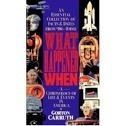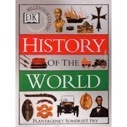A Regency Era Timeline 1805 in progress
That’s right, today is the first week that it is available. Kindle’s today, and then in a week or so, you can have it in your hands physically if you so desire in Trade Paperback form as the other releases from our publisher, Regency Assembly Press does.
This release the publisher is trying out the Kindle Select program so it is exclusive to Amazon for 90 days. What that means for you, a reader, is that should you have
1) a Kindle
2) Are a member of Amazon Prime
then you can borrow the book, free to you, and try before you buy (always, please buy.)
For myself and Regency Assembly Press it is an experiment. RAP (And we hope you all are RAPpers and not RAPscallions) wants to see if this will work. They have also reduced the price of this book to half of what RAP books sell for. $3.99 for an electronic copy.
If you do not have an actual Kindle, Amazon has made it possible to read this book on virtually any electronic device. GO HERE if you want to get a copy for something other than a Kindle, or wait patiently until right before Thanksgiving (November 15th) when it will be released in all other digital formats.
Here is a picture, which of course you can click on to go fetch the book:
Love is something that can not be fostered by deceit even should one’s eyes betray one’s heart.
Two brothers that are so close in appearance that only a handful have ever been able to tell them apart. The Earl of Kent, Percival Francis Michael Coldwell is only older than his brother, Peregrine Maxim Frederick Coldwell by 17 minutes. They may have looked as each other, but that masked how they were truthfully quite opposite to one another.
For Percy, his personality was one that he was quite comfortable with and more than happy to let Perry be of a serious nature. At least until he met Veronica Hamilton, the daughter of Baron Hamilton of Leith. She was only interested in a man who was serious.
Once more, Peregrine is obliged to help his older brother by taking his place, that the Earl may woo the young lady who has captured his heart. That is, until there is one who captures Peregrine’s heart as well.
Available in other digital formats on 11/15/2012
Timeline
Each time I start a year, I have already compiled a list, months ago with about 6000 entered of what happened from 1788 to 1837. My first step now (It took several trials to get this down to a science) is to cut out the specific year I will work on and paste it into its own spreadsheet to work with. When I worked on the entire spreadsheet, sometimes inserting a line, with all the graphics I had begun to place, took a long time. Working on each year alone, is a lot faster.
With the year separated out, I now turn to my book sources,
The Timetables of History by Grun and Stein
Chronology of CULTURE by Paxton and Fairfield
 What Happened When by Carruth.
What Happened When by Carruth.
 , History of the World. A beautiful Dorling Kindersley book.
, History of the World. A beautiful Dorling Kindersley book.
I now and diligently look through each of these to find entries that I did not come across on the internet, and other printed lists. It is possible that there are places that have more listings for each year. I have not found them. And when you go to the Timelines at the Regency Assembly Press page, there you will see all the graphical references as well. Something that I did not find anywhere else.
Here is the start of 1805:
Year
Month Day
Event
1805
Jan 11
The Michigan Territory was created.
1805
Jan 31
Mungo Park set sail from Portsmouth to Africa where he planned to navigate the Niger River to its mouth.
1805
Feb 11
At Fort Mandan ND Sacajawea (16), the Shoshoni guide for Lewis & Clark, gave birth to a son, with Meriwether Lewis serving as midwife. Sacagawea, the young Native American girl who aided the Lewis and Clark Expedition, was of the Lemhi Shoshones, who made their home in what is now southeastern Idaho and southwestern Montana. About 1800 Sacagawea was captured by a Hidatsa raiding party at the Three Forks of the Missouri River. Sometime in 1804, she and another woman were purchased by French-Canadian fur trapper Toussaint Charbonneau, who lived among the Hidatsa and Mandan Indians, to be his wives.
1805
Feb 18
Louis Malesherbes Goldsborough, Rear Admiral (Union Navy), was born.
1805
Feb 26
Alexander Stulginskis, the 2nd president of Lithuania, was born at Kutaliai in the Silale region. He died Sep 22, 1969 in Kaunas.
1805
Mar 1
Chief Justice Samuel Chase was acquitted by the Senate ending the Republican campaign against the Federalist bench and discouraging subsequent administrations from using impeachment to remove politically obnoxious judges.
1805
Mar 3
Louisiana-Missouri Territory formed.
1805
Mar 4
Pres. Thomas Jefferson delivered his 2nd inaugural address.
1805
Apr 2
Hans Christian Andersen (d.1875), author of 150 fairy tales, was born in Odense, Denmark.
1805
Apr 7
Francis Wilkinson Pickens (d.1869), later Confederate governor of South Carolina, was born in South Carolina.
1805
Apr 7
The Lewis and Clark Corps of Discovery resumed their journey to the headwaters of the Missouri River.
1805
Apr 7
Beethoven conducted the premiere of his “Eroica” symphony. It was 1st published in Vienna.
1805
Apr 24
U.S. Marines attacked and captured the town of Derna in Tripoli from the Barbary pirates. [see Apr 27]
1805
Apr 27
US navy ships began to bombard the Tripoli port of Derna. Mercenaries gathered in Egypt and a small contingent of US Marines under former Tunis consul William Eaton attacked Tripoli and captured the city of Derna [later part of Libya].
1805
April
April: Beethoven premiers his “Eroica Symphony” (Symphony No. 3 in E-flat major, Opus 55) in Vienna. When he composed it early the previous year, he dedicated it to Napoleon, but struck out the dedication when he learned the First Consul had declared himself emperor.
1805
May 1
The state of Virginia passed a law requiring all freed slaves to leave the state, or risk either imprisonment or deportation.
1805
May 9
Johann Christoph Friedrich von Schiller (45), poet, playwright, died in Weimar.
1805
May 14
Johann Peter Emilius Hartmann, composer, was born.
1805
May 25
William Paley (b.1805), orthodox Anglican writer, died. He is remembered today primarily for classical formulation of the teleological argument for the existence of God. Arguing from the analogy of a watch and watchmaker, Paley suggested that the analogy offered evidence that the universe includes order and design, hence a Designer.
1805
May 26
Lewis and Clark first saw the Rocky Mountains.
1805
May 26
Napoleon Bonaparte was crowned king of Italy. [see May 28}
1805
May 28
Napoleon was crowned in Milan, Italy. [see May 26]
1805
May 28
Ridolfo Luigi Boccherini (62), Italian composer, cellist (Minuet), died.
1805
May
May: Napoleon is crowned, by himself, as King of Italy at the Cathedral of Milan.
1805
Jun 4
The US signed a Treaty of Peace and Amity at Tripoli. The US agreed to pay Tripoli $60,000 in war reparations and was in turn absolved of tribute demands. The treaty was ratified by the US on Apr 17, 1806.
1805
Jun 14
Robert Anderson (d.1871), Bvt. Major General (Union Army), defender of Ft. Sumpter, was born.
1805
June
June: The The British Institution (in full, the British Institution for Promoting the Fine Arts under the Patronage of His Majesty) is founded by a group of connoisseurs who organized exhibitions and competitions. Read more about it here on this site .
1805
Jul 19
Members of the Lewis & Clark expedition made their way up river through the limestone walled gorge they called the Gates of the Mountains on the Missouri River in Montana.
1805
Jul 25
Aaron Burr visited New Orleans with plans to establish a new country, with New Orleans as the capital city.
1805
Jul 26
Constantine Brumidi, artist (Myrtle Murdock), was born.
1805
Jul 26
Naples and Calabria were struck by an earthquake and some 26,000 died.
1805
Jul 29
Alexis de Tocqueville (d.1859), French historian who wrote “Democracy in America, was born.” “America is a land of wonders, in which everything is in constant motion and every change seems an improvement.”
1805
July
July: Muhammad Ali Pasha (the “founder of Modern Egypt”) becomes the Ottoman Viceroy in Egypt. His “dynasty” will rule Egypt until 1952.
1805
Aug 3
Mohammed Ali became the new ruler of Egypt.
1805
Aug 4
William Rowan Hamilton (d.1865), Irish scientist, was born.
1805
Aug 9
Austria joined Britain, Russia, Sweden and the Kingdom of Piedmont-Sardinia in the Third Coalition against Napoleonic France and Spain.
1805
Aug 17
Sacagawea, while traveling with the Lewis and Clark Corps of Discovery, reunited with her brother Cameahwait, a Shoshoni Indian chief on the Lemhi River (Idaho).
1805
Aug 30
The Lewis and Clark Corps of Discovery resumed their westward journey with 29 horses and 6 guides provided by Shoshoni Chief Cameahwait. They spent the next 4 weeks crossing the Bitterroot Mountains (Idaho).
1805
Sep 23
Lieutenant Zebulon Pike paid $2,000 to buy from the Sioux a 9-square-mile tract at the mouth of the Minnesota River that would be used to establish a military post, Fort Snelling.
1805
Sep 30
Napoleon’s army entered the Rhine valley.
1805
Oct 17
Vice Adm. Horatio Nelson wrote a letter to the governor, Rear Admiral John Knight just four days before the historic Battle of Trafalgar, in which Nelson was killed. In it Nelson declared he was “anxious for an Easterly wind,” as that would encourage the enemy to leave port and finally face the British.
1805
Oct 19
Austrian general Karl Mac surrendered to Napoleon’s army at the battle of Ulm.
1805
Oct 21
A British fleet commanded by Vice Adm. Horatio Nelson defeated a French-Spanish fleet in the Battle of Trafalgar fought off Cape Trafalgar, Spain. Admiral Nelson won his greatest victory and though fatally wounded in the battle aboard his flagship, he lived long enough to see victory: “England expects every man to do his duty.” The crew fittingly preserved his body in rum. Over 8,500 Englishmen, Frenchmen and Spaniards were lost in the battle or the hurricane that swept over the ships the next day. In 1807 Nelson’s surgeon William Beatty authored “authentic narrative of the Death of Lord Nelson.” In 1999 Barry Unsworth authored the novel “Losing Nelson.” In 2001 Joseph F. Callo edited “Nelson Speaks: Admiral Lord Nelson in His Own Words.” In 2005 Adam Nicolson authored “Men of Honour: Trafalgar and the Making of the English Hero;” Roy Adkins authored “Nelson’s Trafalgar,” and Adam Nicolson authored “Seize the Fire.”
1805
October
October: At the Battle of Trafalgar, the British Royal Navy defeats the combined French and Spanish fleet in the most decisive naval battle of the Napoleonic Wars, effectively ending French pretensions as a sea power. Admiral Lord Nelson dies in the battle, and is still considered the greatest naval hero in British history.
1805
Nov 7
Lewis and Clark vamped opposite Pillar Rock, between Brookfield and Dahlia, Washington, west of Jim Crow Point, in the estuary of the Columbia River.
1805
Nov 14
Fanny Cecilia Mendelssohn Hensel (d.1847), composer, was born in Hamburg, Germany.
1805
Nov 14
Napoleon took control of Vienna, Austria.
1805
Nov 15
Captain Meriwether Lewis and four men of the Corps of Discovery reached the Pacific Ocean near what is now Seaview, Washington. On November 18, Captain Clark and eleven men left Station Camp for their turn to view the Pacific Ocean.
1805
Nov 19
Ferdinand de Lesseps, French diplomat and engineer (built Suez Canal), was born.
1805
Nov 20
Beethoven’s “Fidelio,” premiered in Vienna.
1805
Nov 28
John Stephens, US archaeologist, was born. He founded the study of Central America.
1805
November
November: Beethoven’s opera Fidelio (under the name Leonore) premiers in Vienna.
1805
Dec 2
Napoleon Bonaparte celebrated the first anniversary of his coronation with a victory at Austerlitz over a Russian and Austrian army.
1805
Dec 6
Nicholas-Jacques Conti (b.1755), French pencil maker, died in Paris. He created the number system used to rate pencil lead hardness: the higher the number, the harder the graphite.
1805
Dec 10
William Lloyd Garrison (d.1879), abolitionist publisher, was born in Newburyport, Mass. In 1831 he published “The Liberator.” In 1998 Henry Mayer published “All On Fire: William Lloyd Garrison and the Abolition of American Slavery.”
1805
Dec 12
Henry Wells, founder of American Express and Wells Fargo, was born.
1805
Dec 23
Joseph Smith Junior (d.1844), principal founder of the Mormon religious movement, was born in Sharon, Vermont.
1805
Dec 31
The French Revolutionary calendar law was abolished. France returned to the Gregorian calendar.
1805
December
December: Napoleon defeats the Russian and Austrian armies at the Battle of Austerlitz.
1805
December
December: The French Republican Calendar is abandoned, and France returns to the Gregorian calendar.
1805
The battle of Trafalgar.
1805
The first annual Eton vs Harrow cricket match is held at Lord’s Cricket Ground. The young Lord Byron is on the losing Harrow team.
1805
The London Docks open at Wapping.
1805
Thomas Sheraton publishes the “Cabinet Maker, Upholsterer and General Artist’s Encyclopaedia”.
1805
William Blake publishes Milton.
1805
Russia, Austria and Sweden ally themselves with Britain.
1805
In Milan, Napoleon is crowned King of Italy. He is looking towards an invasion of England. A French fleet sails north to Spain’s Atlantic port of Cadiz. Napoleon orders his French and Spanish ships out of Cadiz to do battle with the British. The British win, at the Battle of Trafalgar, frustrating Napoleon’s invasion plan.
1805
For two years the British East India Company has been warring against the Maratha Empire — which was allied with Napoleon. The East India Company wins and gains control over Orissa and western Gujarat.
1805
The son of Abdul Aziz, now head of House of Saud, defeats an Ottoman garrison and captures the holy city of Medina.
1805
Charles Willson Peale, American painter began his painting “The Exhumation of the Mastodon.” It was based on an 1881 real exhumation in rural New York that helped topple biblically inspired beliefs of the history of the earth.
1805
Pierre-Paul Prud’hon (1758-1823), French artist, painted “Empress Josephine at Malmaison.”
1805
Joseph Mallord William Turner (1775-1851), English painter and printmaker, created his painting “The Shipwreck.”
1805
“Leonore,” the only opera by Beethoven, premiered. It later became known as “Fidelio” and was based on a play by Jean Nicolas Bouilly.
1805
Louisiana passed legislation against sodomy. The law was upheld in 2002.
1805
The Massachusetts state Legislature staged a mock impeachment trial of Pres. Jefferson. His affair with Sally Hemmings was one of the charges.
1805
The Philadelphia harbor was dredged with a high-pressure steam engine invented by Oliver Evans. He was unable to get a proper patent for it.
1805
As early as 1805, Bostonian Frederic Tudor (b.1783) considered ways to make money by exporting ice, a valueless commodity in New England, to the tropics. Tudor supported technical innovations, like the horse-drawn sleigh with saw-like runners, which improved the cutting, shipping and storage of large ice blocks. Recognizing that people living in warm climates were not familiar with cool food and drinks, Tudor traveled to prospective markets making ice cream and providing free ice for barkeepers. By 1856, Tudor’s role as the “Ice King” was firmly established as 146,000 tons of ice shipped from Boston transformed the eating habits of people from the Philippines to the southern United States.
1805
Napoleon defeated Austria and Prussia. In 1997 Alistair Horne wrote: “How Far from Austerlitz? Napoleon 1805-1815.”
1805
Lord Charles Cornwallis, governor general of India, died in India.
1805
Jean-Baptiste Greuze (b.1725), French artist, died. Diderot said: “This man draws like an angel.”
1805
Prussia sent Baron Wilhelm von Humboldt as envoy to the Vatican, the first Protestant state to do so.
1805
Walter Scott (1771-1832) of Edinburgh, Scotland, published his first long poem: “The Lay of the Last Minstrel.”
1805
Spanish soldiers under Lt. Francisco Ruiz discovered badgers in a canyon during an expedition in southern California. The area was thus named El Tejon (the badger).
1805-1815
The 1997 book by British historian Alistair Horne: “How Far From Austerlitz,” covered this period Napoleon Bonaparte.
1805-1848
Khachatur Abovian, Armenian novelist, helped develop a nationalist literature.
1805-1848
Mehemet Ali (Muhammad Ali) served as the viceroy of Egypt.
1805-1859
Alexis de Tocqueville, French writer and social observer.
1805-1882
Ralph Waldo Emerson, American essayist and poet, author of English Notes. [this date is incorrect, see 1803-1882]






